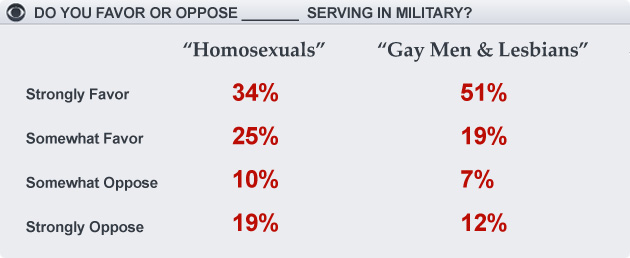U2democrat
Blue Crack Addict
The end of Don't Ask, Don't Tell?
Posted: 06:15 PM ET
From CNN's Jamie McIntyre and Laurie Ure
WASHINGTON (CNN) – The lead sponsor of a bill to overturn the controversial Don't Ask, Don't Tell law said the law could conceivably be passed in the first year of President-elect Obama's administration.
President-elect Barack Obama has pledged to lift the ban on gays serving openly in the U.S. military.
A transition office spokesman refused to comment for this story but two months ago, Obama signaled he would move cautiously, telling the Philadelphia Gay News newspaper he would first get the military on board:
"Although I have consistently said I would repeal Don't Ask, Don't Tell, I believe that the way to do it is to make sure that we are working through processes, getting the Joint Chiefs of Staff clear in terms of what our priorities are going to be," he said.
A bill to replace "Don't Ask, Don't Tell", with a policy of nondiscrimination, has 149 co-sponsors in the house, including California's Ellen Tauscher, a Democrat. Tauscher said with new administration, the timing is right to try and pass the bill.
"The key here is to get bills that pass the House and the Senate, that we can get to president-elect Obama to sign, and I think that we can do that, certainly the first year of the administration," Tauscher said in an interview with CNN.
Gay rights advocates say it's important for the new President to avoid the ham-fisted attempt President Clinton tried in 1993, when he naively promised to lift the ban by executive order.
That roiled the Pentagon brass — including then-Joint Chiefs Chairman Colin Powell — and provoked a fierce backlash from conservatives in Congress.
As a result Congress stripped President Clinton of his power to change the policy and forced him to accept the Don't Ask Don't Tell compromise — a law that can only be repealed by Congress.
But after 15 years and four wars, attitudes in the Pentagon — and among the public — have changed dramatically.
A Washington Post-ABC news poll this summer found 75 percent of Americans support allowing gays to serve openly, compared to only 45 percent back in 1993.
More than 100 retired U.S. military leaders — including the former head of the Naval Academy — have signed a statement calling for an end to the military's "don't ask-don't tell" policy, according to a California-based think tank that supports the movement.
Retired Admiral Charles Larson, the former Naval Academy superintendent, tops the list of 104 retired general and admirals who want the government to repeal the policy, the Palm Center at the University of California, Santa Barbara, announced Monday.
Posted: 06:15 PM ET
From CNN's Jamie McIntyre and Laurie Ure
WASHINGTON (CNN) – The lead sponsor of a bill to overturn the controversial Don't Ask, Don't Tell law said the law could conceivably be passed in the first year of President-elect Obama's administration.
President-elect Barack Obama has pledged to lift the ban on gays serving openly in the U.S. military.
A transition office spokesman refused to comment for this story but two months ago, Obama signaled he would move cautiously, telling the Philadelphia Gay News newspaper he would first get the military on board:
"Although I have consistently said I would repeal Don't Ask, Don't Tell, I believe that the way to do it is to make sure that we are working through processes, getting the Joint Chiefs of Staff clear in terms of what our priorities are going to be," he said.
A bill to replace "Don't Ask, Don't Tell", with a policy of nondiscrimination, has 149 co-sponsors in the house, including California's Ellen Tauscher, a Democrat. Tauscher said with new administration, the timing is right to try and pass the bill.
"The key here is to get bills that pass the House and the Senate, that we can get to president-elect Obama to sign, and I think that we can do that, certainly the first year of the administration," Tauscher said in an interview with CNN.
Gay rights advocates say it's important for the new President to avoid the ham-fisted attempt President Clinton tried in 1993, when he naively promised to lift the ban by executive order.
That roiled the Pentagon brass — including then-Joint Chiefs Chairman Colin Powell — and provoked a fierce backlash from conservatives in Congress.
As a result Congress stripped President Clinton of his power to change the policy and forced him to accept the Don't Ask Don't Tell compromise — a law that can only be repealed by Congress.
But after 15 years and four wars, attitudes in the Pentagon — and among the public — have changed dramatically.
A Washington Post-ABC news poll this summer found 75 percent of Americans support allowing gays to serve openly, compared to only 45 percent back in 1993.
More than 100 retired U.S. military leaders — including the former head of the Naval Academy — have signed a statement calling for an end to the military's "don't ask-don't tell" policy, according to a California-based think tank that supports the movement.
Retired Admiral Charles Larson, the former Naval Academy superintendent, tops the list of 104 retired general and admirals who want the government to repeal the policy, the Palm Center at the University of California, Santa Barbara, announced Monday.





